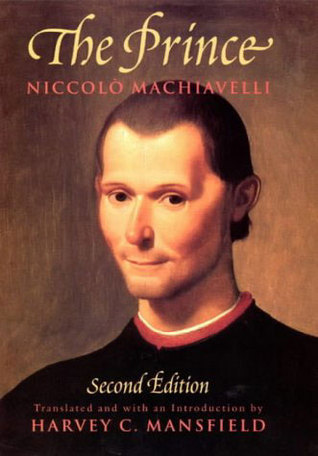yung.carl.jung
Hey Bird! I'm Morose & Lugubrious
How was Discipline and Punish? I still got to read that one.
Very enjoyable read. Lays out Foucaults entire philosophy of power dynamics and the punishment of "the body" in the first few chapters. Probably the most essential Foucault read after Archaeology of Knowledge?
I picked up The Archaeology of Knowledge over the summer, haven't started reading it yet. But I'm reading Economy and Society by Weber for the first time (in translation of course), and I'm rereading Maurice Dobb's Studies in the Development of Capitalism.
How are you liking Weber? I wonder how he reads in translation, pretty happy to be able to read him in his native tongue.
Ironic. When I was in high school, I devoured everything by him I could get my hands on. You're spot on re Animal Farm. Orwell had fought for the communists in the Spanish Civil War, and they were on the verge of winning when Stalin betrayed them. Orwell was crazy-anti-communist after that.
I almost got through Inferno, but the unceasing tortures finally wore me out.,
I'm a fan of torture, personally
 Looking forward to Inferno
Looking forward to InfernoNo. The Communists were never close to winning in Spain. They did manage to almost completely take over the Republican side, which on one hand made the red scare Fascists right but at the same time was made possible because the democracies bought the scare in the first place.
Ironically enough Stalin disn't intend to take over the Republic, as it was trying to take the Soviet Union out of pariah-statehood and saw support for the Republic as a tool for that. It was the Spanish communists that purged the Trotskyists that Orwell fought with as well as the anarchists.
I personally found Animal Farm masterful satire, though I could reconsider upon rereading.
Nah, that just sounds bizarre. Stalin had nothing to do with the "May Events" as they are called, whereby the Communists with full support of the Spanish government gutted the Trotskyist and anarchist militias that autonomously held power in Catalonia alongside its government: it was Madrid and its Communists cracking down on autonomies to unify the war effort.
I understand that the full picture is hard to see from Orwell because he was in the middle of it, but I seem to remember it captures the stalemate in Aragon and the infighting, without any sense of impending victory.
I think you're wrong here. Infact, Stalin played perhaps the most important role in the dismemberment of the republican forces. I wrote a paper on this a year ago, let me dig it up..
As you may know, it was mostly the anarchist factions that, at the beginning of the civil war, surprisingly won lots of skirmishes, thereby encapturing momentum for the republican forces and beating the fascists both at an operational and a psychological level.
Stalin, with the motive of delaying the German invasion by keeping them busy with Spain, noticed the tensions not only between the communists, anarchists and republicans, but also inside of each respective ideological group: CNT and FAI were direct targets of his. He had his agents infiltrate every politically relevant party on the republican side, had many dissidents killed or simply disappear.
Furthermore, Stalin via his advisors offered "military expertise" to the clueless communists, which was the final nail in the coffin. His alternative plans were poorly worked out, they were constructed to fail of course, he knowingly sent his comrades running into a knife because to him they were useful idiots.
If you want to delve a little deeper try Heleno Sana (2001): The Libertarian Revolution for a detailed account of the role of the anarchist forces and Stalinist intervention. For the rest my sources are Hobsbawm, 1977 (who is revered, but I dislike him due to his obvious ideological bias) and Borkenau 1988 (a relatively neutral source imho).
Of course there are hundreds of possible reasons one could pinpoint the republican loss towards: German, Italian and American (!) intervention on the side of the fascists, the fact that the republican govt. ignored repeated warnings about a coup.. But I still think that without Stalins intervention, this conflict would have seen a different end.
>It was the Spanish communists that purged the Trotskyists that Orwell fought with as well as the anarchists.
Yes, it was indeed the Spanish communists that commited these atrocities, but who rallied them up? Who split them up, divided them, pitted them against each other, made them hate their ideological brothers? Who has interested in the fall of Troskyism, who had the means to achieve this?
I am not saying the Spanish have no agency, or that all communists were merely playing Stalin's puppets, but I think at this point there is no doubt about who started the fire.
Another interesting point that Sano makes is that Stalin specifically also targeted the anarchists, because he was well aware that his meddling would not work should the anarchists be the majority among all republicans. As it turned out, all the relevant anarchist leaders either died, were assasinated or left the movement, so as you said already, the republican forces ended up under communist lead, which is another reason why this conflict went sour really quick.
Last edited:

 ), and they (it seems) would stand to risk independence movements in their south border with Spain as well (catalan and basque?)?
), and they (it seems) would stand to risk independence movements in their south border with Spain as well (catalan and basque?)?


